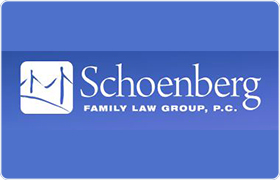Alameda County, CA Child Custody Lawyers
Sponsored Law Firm
-
 x
x

Click For More Info:
-
Schoenberg Family Law Group, P.C.
575 Market St Suite 4000 San Francisco, CA 94105» view mapDivorce & Family Law Over 30 Years of Experience
Schoenberg Family Law Group, P.C., recognizes that family law matters involve complex, sensitive issues that can have a lasting impact on you and your family.
800-781-8440
Includes: Guardianships & Conservatorships, Custody & Visitation
Lawrence William Thorpe
✓ VERIFIEDDivorce & Family Law, Child Custody
+ LLMCorporation Law from NYU + Preeminent rating Martindale-Hubble
Larry is a family law specialist, certified by the California Board of Legal Specialization, with the highest rating by Martindale-Hubbell as AV-Preem... (more)
Lily Mayumi Kimura
Family Law, Divorce, Child Custody, Divorce & Family Law
Status: In Good Standing Licensed: 48 Years
Annalee Cobbett
Elder Law, Business & Trade, Commercial Bankruptcy, Guardianships & Conservatorships
Status: Inactive Licensed: 31 Years
Sandra F. Banks
Divorce, Child Support, Child Custody, Divorce & Family Law
Status: In Good Standing Licensed: 32 Years
FREE CONSULTATION
CONTACTKennedy Koblin
Family Law, Divorce, Child Support, Child Custody
Status: In Good Standing Licensed: 16 Years
David V. Perry
Administrative Law, Pension & Benefits, Child Custody, Trusts
Status: In Good Standing
 Debra Schoenberg San Francisco, CA
Debra Schoenberg San Francisco, CA AboutSchoenberg Family Law Group, P.C.
AboutSchoenberg Family Law Group, P.C. Practice AreasExpertise
Practice AreasExpertise

